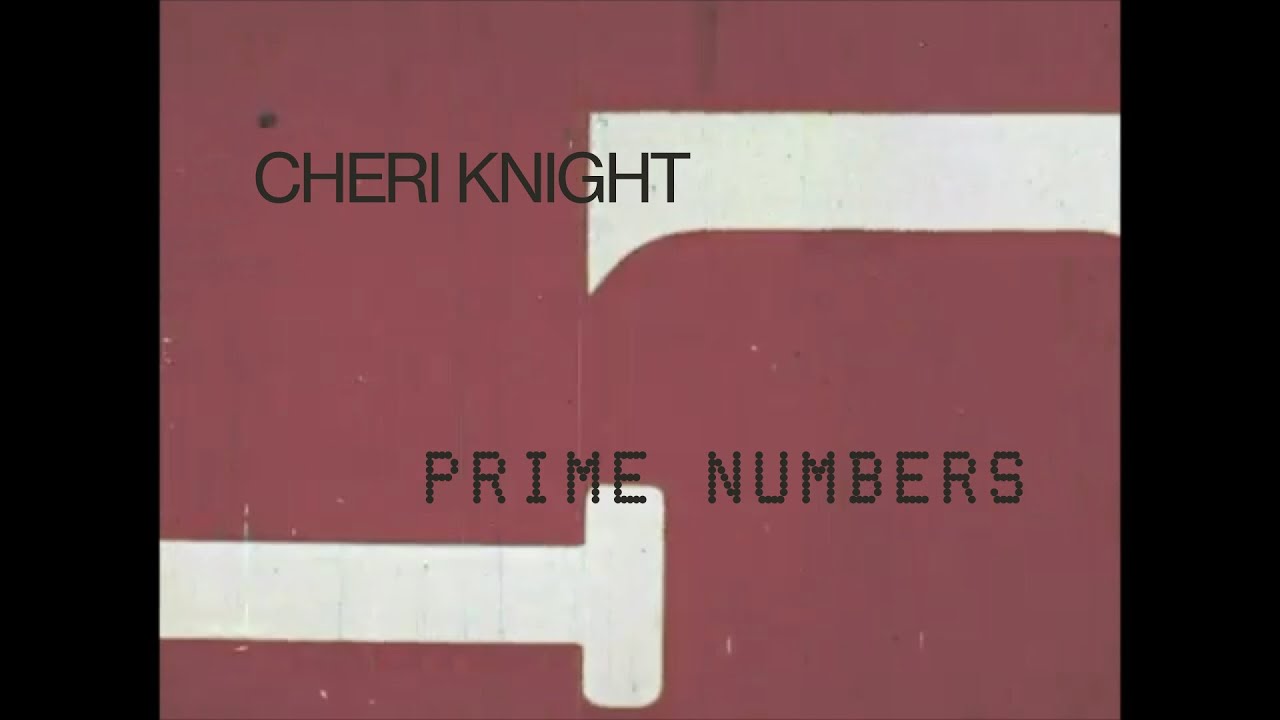Rum Music is changing. I am sad and happy to announce that after this month the column will be switching to bi-monthly. It’ll be exactly the same, but with half the number of episodes per year. I am expecting an improvement to my filters; an inbox I might even get on top of, and the space to fall more deeply in love with releases.
However, this month’s Rum Music is an especially good one if I say so myself. The Afrorack is the exact sort of modular music I will never ever tire of; Old Heaven Books have put out another really stellar release, perhaps one of their best ever; and I’ve been waiting to talk about Cheri Knight for months. The latter is a lead review of sorts – there was so much I wanted to say about it, it pulled my attentions away from everything else. It is such a pleasure to describe in writing, too.
Given the incoming shift in regularity, now seems a good time to remind you that you can also find my music picks on long-running BBC Radio 3 show Late Junction, where myself and Verity Sharp play two hours of music for adventurous listeners every Friday night from 11pm UK time. Adventurous listeners is about the best we’ve come up with to describe the show – my last episode I played music for broken violins, Shun Nakaseko’s recording of a horn symphony in Kathmandu (covered in last month’s column), and my producer Tej pulled out some excellent new gamelan recordings to play (see AOB).
Outside of this column, I’ve been writing a second book, but also found time to see Laibach in Lourdes for tQ, which was a deeply strange experience you can read about here. My book The Foghorn’s Lament, also came out in paperback this month, and was published German via Mare Verlag. In case you were wondering, the German for foghorn is ‘nebelhorn’. See you in July!
Cheri Knight – American Rituals
(Freedom To Spend)
Cheers to FTS affiliate Pete Swanson for tipping me off very early about this. I’ve been pasting my review over for months until I can actually link to somewhere that readers can actually hear it, but truthfully, it’s been my album of the month for about three months (keen listeners to Late Junction might have been the first to hear it pre-release anywhere, as I’ve played a couple of tracks there). It’s about as up my strasse as it’s possible to be – bare bones vocal constructions and vernacular post punk influenced by Deep Listening, and minimalism, basically. Consider that this might appeal to fans of Steve Reich, Michelle Mercure and Ut, and you should start getting the picture of the sound world contained. There’s something deeply foundational, ur-DIY about the instruments Knight uses, and the lexicon in particular – primary colours, prime numbers – that assemble the track structures. There’s also nothing extraneous. On ‘Breathe’, for example, there’s little more than voice, pucks of percussion made with what sound like metal pipes; simple bass motifs and scant curlicues of guitar. Knight made the tracks on this album in the early 80s, which have previously been scattered among a variety of compilations. At this time she was part of the lesser-known DIY scene around Evergreen State College in Olympia, Washington, where she studied composition. She worked with Pauline Oliveros, performance artist Linda Montano, and later in the alt-country band Blood Oranges, before moving into flower farming. She also keeps goats.
The Afrorack – The Afrorack
(Hakuna Kulala)
The Afrorack is Brian Bamanya, who taught himself electronics and started building his own synth units after he had trouble getting hold of modules in Uganda, constructing what is now a massive wall of modules and FX units; essentially "Africa’s first DIY modular synthesizer". Many a fantastic synth engineer has failed to make great music, but not so here. The Afrorack taps into the hi-resolution contemporary zone-outs of knob twiddlers like Bass Clef and Robert Aiki Aubrey Lowe, retaining a percussive sensibility – it’s not like Sarah Davachi, for example, which has a sense in which it is suspended, durational and stretched out. Instead, like Bass Clef in particular, Bamanya lays down beds of thick syrupy signals animated with lace-like patterns and polyrhythmic percussions that are gloriously siren-like in their hypnotic signal loops. It sounds like looking at marbled paper while tripping: its pulses give it a topography and the lines swim. The pieces are all ‘normal’ length, but I’d love to get my ears into an extended piece. Essential for modular heads and meditators. Very pleasing on-body printing on the CS too.
Ana Hato And Deane Waretini – Calm When You Passed By: Aotearoa Songs 1927-29
(Canary Records)
Beautiful songs by Ana Hato, a singer from Aotearoa, the north island of New Zealand colonised by the British at the end of the 19th Century. Hato’s cousin Deane Waretini, whom she worked in the tourist trade and often sang with, said that Hato was the finest Māori singer the nation had ever known – back in the 20s it was said she had a voice with "trueness in purity and register" and "hotu" (like a heart beating, or sobbing without tears). These recordings were made in the late 1920s (when Hato was in her early 20s), and at a century old and from the other side of the world, listening from my little box room in North East London, it feels from another world entirely. Hato brings traditional Māori singing styles into her songs, and it’s the less bouncy numbers I prefer. I don’t always enjoy the jaunty piano accompaniment, but in songs like ‘Hine E Hinei’ Hato and Waretini sing a stillness into being with a longing that conjures a sort of threshold in time and in place, that I can feel, but from this distance, cannot understand or fully comprehend.
Propan – Swagger
(SOFA)
Swagger began life as a 2016 commission of the same name that also included choreography and lighting. It is the second release I’ve covered in Rum Music by Propan, a Danish vocal duo of Ina Sagstuen and Natali Abrahamsen Garner. While the last tape felt like a fairly intimate and meditative set of recordings, here they’re joined by an ensemble they’re calling Propanions, that comprises eight musicians on strings, winds, percussion, voices, and electronics. Some is scored and some is improvised, but each track homes in on a sound, a source, or an idea. To me, it synthesises a lot of thinking about sound and feels like an understated but really lucid application of these ideas, rendered in very spare pieces of music. I can hear vocal references to minimal computer works of the 60s; the well-sampled vocal songs on the Ocora recordings from Burundi; acoustic phenomena like Shephard tones, as well as extended vocal techniques, noisy concrete experiments, bubbles and ball bearings.
Various Artists – Region, Music, And Practice Vol.1
(Old Heaven Books)
Mamer, Lao Dan and others appear on an album documenting an event I don’t have much detail about, other than what’s in the Bandcamp notes. The event brought together traditional and contemporary practices; Lao Dan and Mamer created brand new works, and Mamer started a new band called Mask. It includes improvisations and songs played on mouth harps, traditional flutes, and a sherter – a lute-like three-stringed plucked instrument. The solo pieces are fantastic, and the album’s notably well-sequenced too. I particularly enjoyed the caustic twang of the mouth harp followed by the breathy pillow-like flute timbres. The Mask and Mamer tracks build from these pieces, driving the often scant (and sometimes frenzied) instrumentation with stomping rhythms. Instrumental piece ‘B10’ even has a touch of the Mule Variations about it. Really one of my favourite releases that’s come out of this Shenzhen label and bookshop.
Gav & Jord – Writings Ov Tomato
(MAL Recordings)
Gav and Jord are Equiknoxx’s Gavsborg and Time Cow, aka Gavin Blair and Jordan Chung. In the context of their solo outputs these tracks are quite heads down and driven by a rolling torque. They still squeeze in some daftness in the track titles (see ‘Childish House Mafia’ and ‘No Sweat In My Sweat Pants’). The bass on ‘Appiness’ has a happy-making subterranean rumble; title track is busy with hectic percussive splatters; ‘Pig Pilot’ is driven by an insistent sort of squeaking, and ‘No Sweat In My Sweatpants’ is built from gamelan-like small gong sounds that are ripped into by a fat kick, claps and odd, mumbled vocal snippets that sound like they’re being delivered by someone doing a baby voice for a sock puppet. Stuff like this is exactly why I like these two so much though – they make a track that really moves, with a minimal number of layers, then jack it with something completely incongruous.
Vox Populi! – Psyko Tropix
(Touch Sensitive)
Sean Kitching has written a longer review of this for newcomers to Vox Populi but a) it’s been on heavy rotation for me, and b) I think it warrants some relating to their best known work, Half Dead Ganja Music. I often take tracks from HDGM to DJ sets, before realising its slurry of hand drums and rotten ooze of post punk are deeply inappropriate for almost all settings where you’re playing music to people who are drinking and socialising. However, this new archival comp and reissue might change all that, culling tracks mostly from the period 1986-1990, which are relatively glossy and well turned-out in comparison to HDGM, with heavy Persian influences from Mitra and Arash. ‘Caballo Blanco’ opens with chord organs and crisp unfurling riffs, un-locked to percussion that sounds part drum circle, part plumbing pipes, the circle squared with crunchy French vocals mussing the mix and spiralling into psychedelia. Other tracks by this self-described "ethno noise" group have no noise, like ‘Holistikoholic’, and the folk singing and birdsong of ‘Golpari June’ and often percussion is the sprung sound of tabla. Some are soaked in tin-foil reverb and lather up a cosmic wonderland, or play with mouth pops and grunts. Psyko Tropix is like the slow sunny Sunday after the heavy Saturday night of Half Dead Ganja Music. (NB: Emotional Rescue have also recently repressed their reissue of Aither.)
AOB
I just received the Spring 2022 Finnish WeJazz magazine, called ‘Tetragon’ with Joe Henderson as the main feature (the last one was on Alice Coltrane, and was called ‘World Galaxies’). The Summer edition is also up, is on Horace Tapscott and is called ‘The Call’. More info here.
Also cheers to my Late Junction producer Tej Adeleye for flagging this project that’s recording and releasing gamelan music. Lots to dig into, and an ongoing concern too, it seems. Here’s the most recent:




